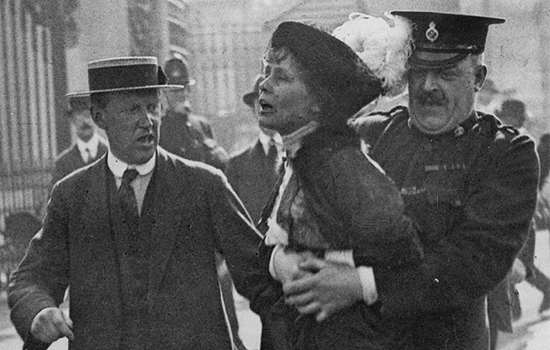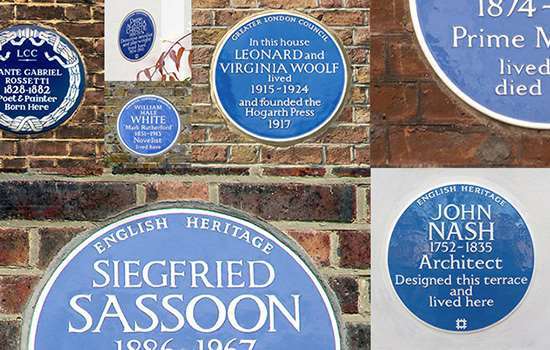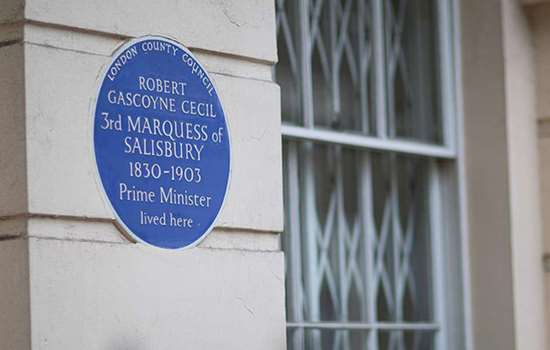FLANDERS, Michael (1922-1975) and SWANN, Donald (1923-1994)
Plaque erected in 2018 by English Heritage at 1 Scarsdale Villas, Kensington, London, W8 6PT, Royal Borough of Kensington and Chelsea
All images © English Heritage
Profession
Performers, musicians
Category
Music and Dance, Radio and Television, Theatre and Film
Inscription
MICHAEL FLANDERS 1922-1975 DONALD SWANN 1923-1994 Writers and performers of comic songs lived and worked in the garden studio
Material
Ceramic
The performers Michael Flanders and Donald Swann were a double act who became famous in the 1950s and 1960s for their satirical and comic songs. They are commemorated with a blue plaque at 1 Scarsdale Villas in Kensington, where they lived together in 1953–5.
SCARSDALE VILLAS
Michael Flanders and Donald Swann moved into the garden studio at 1A Scarsdale Villas in 1953, the same year they began contributing songs for Airs on a Shoestring at the Royal Court Theatre, which proved a milestone in both their friendship and career. The studio was ideal for Flanders, Swann later said, ‘because it was enormous, all on one floor, and devoid of furniture which meant he could whizz around on his wheelchair’. Swann himself slept on ‘a sort of parapet’ that he climbed into at night. During these years they entertained friends with their songs at the Kensington studio, and were soon encouraged to take to the stage themselves.
Swann moved out of the studio in 1955 but Flanders lived at Scarsdale Villas for almost ten years in total, moving out in 1962.
EARLY LIVES
Flanders and Swann first performed together in 1940 while attending Westminster School, but it wasn’t until 1948 that they began writing professionally. Both men had been posted abroad during the Second World War, and had very different experiences.
Flanders left his studies at Oxford University to join the Royal Naval Volunteer Reserve in 1942. While serving on HMS Marne, he survived a torpedo attack but contracted poliomyelitis and was declared medically unfit in August 1943. He was discharged from hospital in 1948, however Oxford refused his application to complete his degree on account of his disability – he was now a wheelchair user.
Swann, whose English-Russian father and Turkmenistan mother met in the First World War while working for the Red Cross in Russia, was a conscientious objector during the Second World War. He was stationed with the United Nations Relief Agency in Greece near the Albanian border when he was overheard remarking ‘What a beautiful thing it would be if this were all one country. Surely we are all one’. He was promptly relieved of his post. On returning the UK, he resumed his studies at Oxford University, taking a degree in Russian, modern Greek and French.
PROFESSIONAL CAREER
For 17 years from 1950, and especially in the period 1956–67, Flanders and Swann wrote and performed a string of hit songs together. In 1957 they developed a cabaret act called At the Drop of a Hat, with Swann seated at the piano and Flanders circling the stage in his wheelchair. Although they achieved particular success with animal songs including, most famously, ‘The Gnu Song’ and ‘The Hippopotamus Song’, their repertoire also embraced English domestic life, the avant garde, and sharply observed satire. They toured extensively, including a long run on Broadway, New York, in 1967, when the show and the partnership finally ended. The pair never worked together again but they remained friends until Flanders’ early death in 1975.


